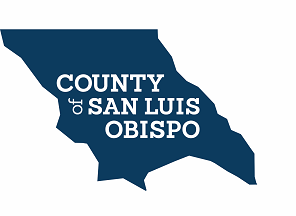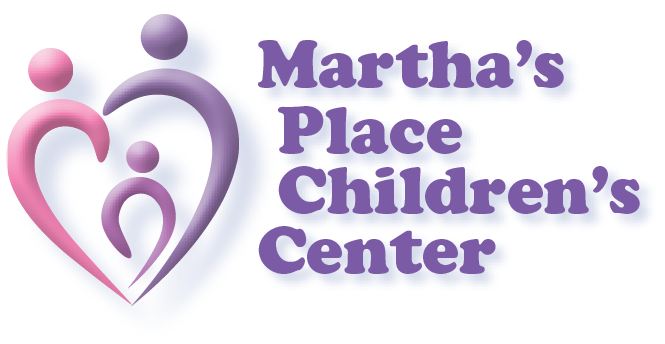Martha’s Place Gives Children who Suffer from Prenatal Substance Exposure and Early Childhood Trauma a Chance to Thrive and to Reach their Full Potential.
A research study known as the Adverse Childhood Experiences Study (ACEs) shows that traumatic experiences in childhood including divorce, domestic violence, abuse and neglect are associated with a greater rate of negative health outcomes later in life, including drug addiction, mental illness, chronic health conditions and even early death. (See the ACEs Study by Kaiser Permanente.) The term “complex trauma” may be used to describe both children’s exposure to multiple traumatic events as well as the long-term effects of this exposure.
In addition to children who have experienced trauma, infants who have been prenatally exposed to alcohol and/or other substances are also vulnerable to experiencing challenges over the course of their life. In 2003, the Public Health Assessment Survey conducted by Community Action Partnership of San Luis Obispo County reported that there were significantly higher incidences of substance abuse among pregnant women on the Central Coast compared to national average:42% screened positive for drug use; 18% of mothers reported smoking during pregnancy; 35% endorsed using alcohol at some point in their pregnancy. We know that use of these substances impacts the development of the fetus and poses health and developmental threats to the child. Due to these findings, it was deemed to be critical in our community to assess these exposed infants as early as birth and provide targeted early intervention treatment up to five years of age to mediate negative health outcomes to the fullest extent possible.
 children birth to five. Martha’s Place is a San Luis Obispo County Health Agency program where Mental Health and Public Health are integrated to provide services for children birth to five. Martha’sPlace provides expert, multidisciplinary assessment of infants and young children who exhibit extreme behavioral concerns, developmental delays, and known prenatal substance exposure.
children birth to five. Martha’s Place is a San Luis Obispo County Health Agency program where Mental Health and Public Health are integrated to provide services for children birth to five. Martha’sPlace provides expert, multidisciplinary assessment of infants and young children who exhibit extreme behavioral concerns, developmental delays, and known prenatal substance exposure.Martha’s Place was named in honor of Martha Johnston great-granddaughter of Shirley Bianchi, whose life, though tragically short, exemplifies both the damage alcohol and drugs can have on children as well as the amazing resiliency of youth when help is provided. We know that brain development is extremely vulnerable during the first five years of life; and therefore it is crucial that children be evaluated medically, developmentally, socially and emotionally beginning as early as possible to identify any areas of concern and address these concerns before they become more challenging and solidified issues.

Martha’s Place is devoted to helping children in our community to reach their full potential, to be loved, to be emotionally well developed and to enter school ready and able to learn. Martha’s Place helps give our most vulnerable young children a voice and a safe, stable environment in which to thrive. It is crucial that Martha’s Place continue to serve children who have this very critical need.
The clinical staff at Martha’s Place including pediatricians, mental health therapists and public health nurses receive specialized training on detecting signs of trauma in infants and toddlers and are knowledgeable in the wide-range of resources in our community dedicated to supporting children and their families. Dr. Nisha Abdul Cader, conducts the specialized pediatric exams at Martha’s Place. She is also the Medical Director for the Suspected Abuse Response Team and serves as the supervising physician at the Juvenile Service Center for the County of San Luis Obispo. As a medical student and pediatric resident at Harbor-UCLA, Dr. Abdul Cader co-founded the UMMA Community Clinic in South Central Los Angeles and is Board Certified in General and Child Abuse Pediatrics. Dr. Abdul Cader frequently lectures locally and throughout the state on prenatal substance exposure evaluation and treatment, as well as on topics concerning child maltreatment.
Today Martha’s Place provides developmentally appropriate, evidence-based services to over 300 children each year. The clinic follows the SART Model of treatment—Screening, Assessment, Referral and Treatment—created by Dr. Ira Chasnoff in Chicago.
Developmental Screening ideally takes place in the community setting, such as by a family’s primary pediatric provider or in a preschool program. At Martha’s Place, screening tools include Ages and Stages Questionnaires and Child Behavior Checklists, through CHADIS, a web-based diagnostic, management, and tracking tool designed to assist professionals in efficiently addressing parents’ concerns about their child’s behavior and development. There are also screening tools for sensory processing differences, such as hypersensitivity to sound, touch, or taste, that can be caused by prenatal substance exposure and early childhood trauma.
In the Assessment phase, the state of the child’s physical and mental health is determined during the intake process. The mental health assessment includes: a comprehensive psycho-social history, observation conducted by a therapist and a child/adolescent needs and strengths (CANS) assessment. The specialized pediatric assessment includes: an in-depth review of the child’s medical history; caregiver interview; a physical growth and development evaluation; and, observations of physical and behavioral signs/symptoms of fetal alcohol/drug exposure and complex trauma.
Following these assessments, the family is provided with referrals to support their child’s identified needs. Referrals include additional specialized medical assessments, such as neurology or hearing evaluations, developmental services, parenting groups, and special education local plan area (SELPA) to advocate for services and accommodations through the school district. Community-based organizations, such as Family Resource Centers, often provide additional services to help families meet their basic needs such as housing, food, transportation and clothing that may be impacting the family’s ability to fully participate in services.
Finally, treatment recommendations are provided to the family, which may include: individual play therapy to process trauma, family therapy to develop secure attachments with caregivers, occupational therapy, and on occasion, medication management. This treatment can be provided at Martha’s Place, by contracted providers in the community or at other County behavioral health clinics closer to the family’s home.
The Role of Attachment in a Child’s Development
Attachment is the deep and enduring connection that is established between a child and caregiver in the first several years of life. This relationship profoundly influences every aspect of a child’s development. A child who has experienced a disrupted attachment/trauma can present with anger, temper tantrums, aggressive behavior, anxiety, withdrawn behavior, sleep and/or eating problems. Their development can be delayed in language, coordination, balance, sensory responsiveness, cognitive functioning and they may have difficulties in processing new information. They also often exhibit poor social and emotional skills and have challenges in reading social cues. Frequently, there is a strong need for control and low self-esteem.
The focus of the team at Martha’s Place is to improve the child’s ability to attach in a healthy way with caregivers—a secure attachment relationship is the primary protective factor in minimizing the negative effects of trauma on the child.
Healthy attachment includes learning basic trust and reciprocity, the child exploring their environment with feelings of safety and security and the ability to co-regulate impulses and emotions. Healthy attachment creates the formation of identity-including a sense of competency, self-worth, and a balance between autonomy and dependency. Importantly, it provides the child the opportunity to form a prosocial moral framework including empathy, compassion, and conscience. It generates a core belief system and provides a defense against stress and trauma.
Martha’s Place Success in Children recovering from Trauma in San Luis Obispo County
Martha’s Place has seen significant positive changes in the lives of children who have been prenatally exposed to substances and/or trauma. Outcome data from 2017 compiled at Martha’s Place indicates that the children served experience a significant reduction in aggressive behaviors as well as improvements in attachment and in sleep. Two families who received services at Martha’s Place agreed to share their experiences:
“When my family was considering moving out of the area, the number one reason we stayed was because of Martha’s Place and the key services it provided our child. Our son is a totally different child since beginning treatment at Martha’s Place. He no longer exhibits continuous meltdowns and his mood has evened out. Medication with therapy has allowed him to be able to engage more appropriately and benefit from interventions”.
“We have received services at Martha’s Place for 3 years and are so pleased with the great progress the therapist achieved with our daughter in helping to alleviate her anxiety and prepare her for elementary school. The therapist, and other experienced professionals, provided guidance to the entire family with parenting skills and support. The pediatrician is a valuable ally throughout our daughter’s treatment program and the rest of the staff at Martha’s Place are excellent. We cherish each and every visit.”
For many families, Martha’s Place is the most important organization within the community providing mental health services that would otherwise be inaccessible or cost prohibitive.
Model of Care Partners Oversight Committee of Martha’s Place (MoCPOC)
MoCPOC, chaired by Mary Bianchi, Aunt of Martha Johnston, seeks to leverage community resources in an open format that informs all partners on the current needs of Martha’s Place and to stimulates ideas, discussion and solutions to ensure children’s needs are being met through the System of Care. MoCPOC is made up of representatives from agencies and individuals including: Center for Family Strengthening, SLO County Child Welfare Services, SLO County Health Agency, SELPA, Community Action Partnership of SLO County, and County Supervisor Bruce Gibson.
MoCPOC’s Vision is for the community of San Luis Obispo to ensure all children will receive any interventions, treatment and support they may need to reach their highest level of growth and development; live safely in their homes, succeed in school, have meaningful friendships, grow up healthy, and become resilient citizens of our community.
A special message from Mary Bianchi:
 Martha’s Place was named in honor of my niece, Martha Johnston, whose tragically short life exemplifies the damage alcohol and drugs can have on the very young. My family was inspired to take action so other young children could have a better chance to heal from the trauma of abuse and neglect. Martha’s Place helps our family deal with the pain and grief of losing our Martha.
Martha’s Place was named in honor of my niece, Martha Johnston, whose tragically short life exemplifies the damage alcohol and drugs can have on the very young. My family was inspired to take action so other young children could have a better chance to heal from the trauma of abuse and neglect. Martha’s Place helps our family deal with the pain and grief of losing our Martha.Please contribute to the Friends of Martha’s Place Fund. Contact Center for Family Strengthening at 805 543-6216 or support@cfsslo.org for more information. All contributions are tax deductible.
__________________________________
Martha’s Place Assessment and Treatment Team Includes:
Program Supervisor: Katie Cohen, LMFT, PsyD
Mental Health Therapists: Casey Roos, LMFT, Jill Anderson, LMFT, Rachel McSpadden-Tarver, LMFT, RPTS
Public Health Nurses: Laura Ottrando, RN, and Betty Wighton, RN
Pediatricians: Nisha Abdul Cader, MD, and Christy Mulkerin, MD
Health Information Technician: Michelle Archer
Reception/Administrative Assistant: Elizabeth Schmidt
Elizabeth Family Advocate: Marivel Flores
Public Health Administrative Assistant: Mary Teresi

